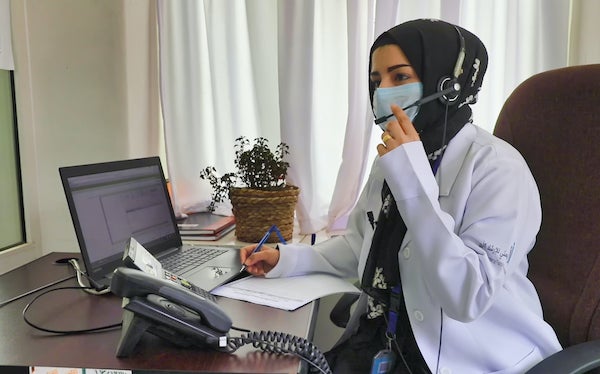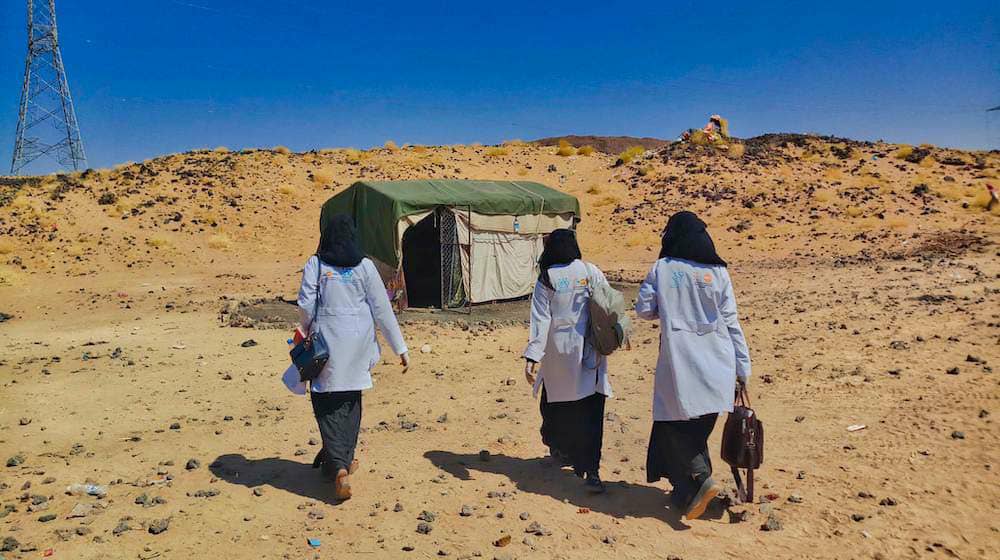The world’s worst humanitarian crisis has been unfolding in Yemen for the past six years. Medicine and midwives are scarce. And the lives of millions of women, girls, and babies are in danger.

Even before the war, Yemen was one of the most dangerous places on earth for pregnant mothers. With many women giving birth at home, the risk of life-threatening complications was high. Now, poverty, looming famine, violence, and COVID-19 have made it that much harder for women, girls, and babies to live safely.
However, we are committed to providing life-saving reproductive and sexual health care in Yemen, no matter what.
Disruptions to Sexual and Reproductive Health Care in Yemen

In 2020, UNFPA worked to meet the needs of women, girls, and babies, but funding shortages and COVID-19 brought their own challenges. Even so, UNFPA kept 80 clinics open for those needing reproductive health care and established 18 hotlines for survivors of violence. The hotlines allowed women and girls to receive mental health care, even while COVID-19 stay-at-home orders were in place.
Additionally, UNFPA delivered care to displaced and rural women by training community midwives in villages and remote rural areas. The agency helped established 170 home clinics by covering the costs of renovation, and of supplies like ultrasound machines and medicines. Despite the numerous challenges 2020 brought, UNFPA provided more than half of all health facilities in Yemen with essential life-saving medicines and reached more than 1.2 million women and girls with reproductive health services.
Continuing to Care for Women, Girls, and Babies

In 2021, UNFPA continues to provide care for women, girls, and babies, even as conditions in Yemen become more dire. This year UNFPA is supporting 105 health facilities across the country. In the first half of the year, UNFPA reached more than 500,000 women and girls with life-saving reproductive health services. To better equip Yemen for COVID-19, UNFPA provided 40 ventilators for emergency obstetric care and 40 ventilators for pandemic response. UNFPA continues to distribute necessary supplies and personal protective equipment to health facilities to protect healthcare workers and mothers seeking care.
To address the rise of gender-based violence from displacement and stay-at-home orders, UNFPA maintains 55 safe spaces across the country. UNFPA is dedicated to providing mental health support. Between January and March, over 50,000 women and girls received services in these safe spaces.
Ongoing conflict, poverty, hunger, and disease leave Yemen’s women, girls, and babies ever more vulnerable. Currently, UNFPA is the only organization providing reproductive and sexual health care in Yemen. UNFPA will deliver the lifesaving sexual and reproductive health care Yemen’s women and girls need and deserve, no matter what.
The need is extreme. But, with your generous support, there is hope.